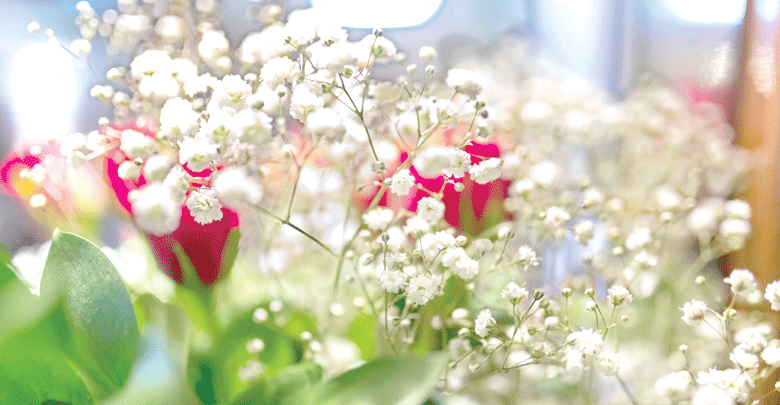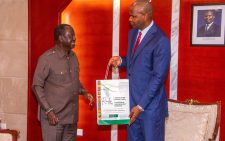Firm’s quest to conduct field trials for GM flower aborts

The flower industry has suffered a setback after the National Biosafety Authority (NBA) turned down an application by Israel Imaginature Ltd to commercialise a genetically modified (GM) flower for the American market.
NBA denied the flower firm a licence to conduct open field trials for the GM Gypsophila flowers, often referred to baby’s breath on grounds it would ignite unfair trade practicse in the sector.
“The board turned down the application because of trade issues. Health safety was not a factor,” said NBA chief executive Prof Dorington Ogoyi.
Ogoyi said the decision was taken long before the present debate that links GM products to the spread of cancer.
In the application, Imaginature said Kenya’s stature as a source of premium flowers would be elevated, enabling the country to earn higher revenues in foreign exchange.
Economic consideration
But Ogoyi said NBA rejected the application on the grounds of social economic considerations given that Kenya is a leading exporter of cut flowers to the European market.
“The argument is the country exports roses to the EU market and is exploring other foreign markets. The new variety may upstage such markets,” said Ogoyi, whose board approved applications for Bt Maize and Bt Cotton GM varieties.
Usually, “baby’s breath” are white. They are mainly ornamental and add a rich texture in floral arrangements and indoor bouquets. They are popular in the flower industry and are commonly used as a bouquets filler, creating a softening effect.
The flowers are tiny, measuring between three to 10 millimetres in diameter and they grow by the thousands on each branched stem.
Gypsophila is commonly used in the USA to decorate children’s hair at occasions such as weddings.
In the request to it, Imaginature Ltd said it had improved the GM Gypsophila variety, enabling it to produce many colours that made it attractive and lucrative.
“We added a few genetic elements responsible for a new colour range — from dark purple to red, to light pink — in baby’s breath from a model plant called Arapidopsis,” the firm had said in a notice to NBA.
Imaginature first conducted confined product development in conjunction with Kenya Plant Health Inspectorate Services and Kenya Agricultural and Livestock Research Organisation under NBA’s supervision.
Regulatory agencies
The application had to be subjected to a science-based review process by NBA, regulatory agencies and independent experts.
“The review meant to ensure that alterations to these flowers have no adverse effects on humans, animals and the environment,” said the NBA notice.
Ogoyi said NBA’s final decision would be announced after safety assessments, socio-economic considerations and analysis of public comments.
Kenya is a top cut-flower grower and exporter to the US and European markets.
The Kenya Flower Council says 100,000 people are directly employed by cut-flower enterprises most of which are near the fresh water Lake Naivasha, around Mt Kenya, Nairobi, Thika, Kiambu, Athi River, Kitale, Nakuru, Kericho, Nyandarua, Trans Nzoia, Uasin Gishu and eastern Kenya.
The rejection of “baby’s breath” comes at a time when Australia insists it will not postpone requirements for Kenya to have met guidelines on its horticultural exports as Nairobi stares at a possible loss of the multi-billion-shilling market.
Kenya had been given a deadline of September this year to comply with the zero pest tolerance directive on all the flowers that are exported to Australia, failure to which they will be banned from accessing the market.
The country should comply with the directive if it is to hit the Sh2.6 billion annual sales but stakeholders in the industry are afraid Kenya will not beat the September 1 deadline.
If the requirements are not effected by September 1, Kenya’s flower export to Australia will halt.








